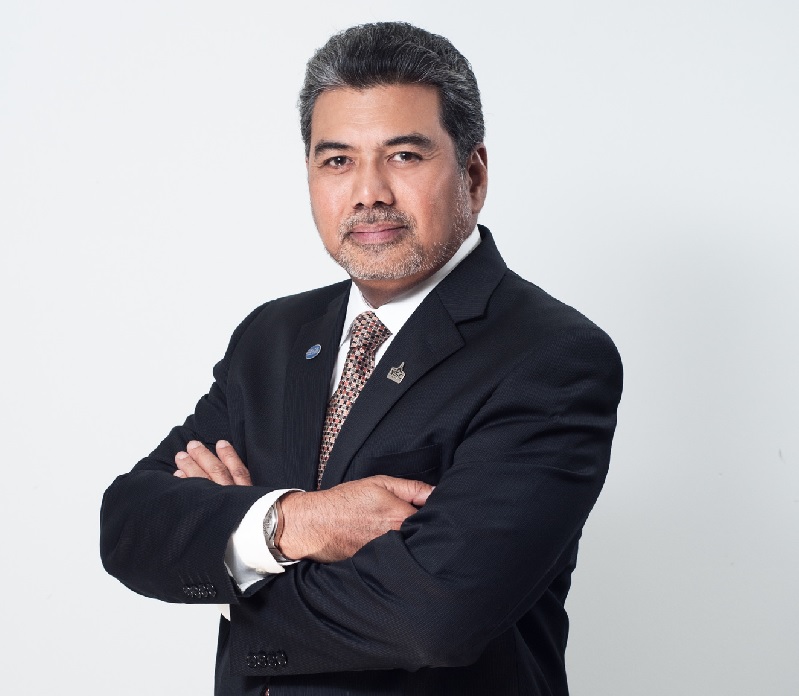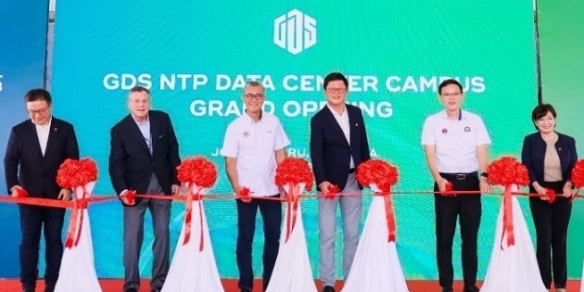Digerati50: A man of two worlds
By A. Asohan March 17, 2014
Digital News Asia (DNA) continues a weekly series that profiles the top 50 influencers, movers and shakers who are helping shape Malaysia’s Digital Economy. These articles are from Digerati50, a special print publication released in January 2014. For information on customised reprints of Digerati50, email [email protected].
- IT industry vet brings private sector push to the public sector
- Believes in consensus, but ready to lead the charge if needed

WHEN 18-year industry veteran Datuk Badlisham Ghazali took over the helm of national ICT custodian Multimedia Development Corporation (MDeC) in January of 2006, many in the tech ecosystem heaved a sigh of relief, saying, “Perhaps now things will get done!”
It was a time when MDeC seemed to have lost its focus, and the Multimedia Super Corridor (MSC Malaysia) vision it was driving for the ICT industry seemed to have lost direction and momentum – partly because of national politics, but partly because MDeC itself seemed to have fallen into the trap of operating like any other public sector organisation.
All were hoping that ‘Datuk Bad,’ as he is fondly known, with his years of experience at US multinational Hewlett-Packard, would bring some of the private sector’s performance-driven onus to the public sector.
Seven years later, even MDeC’s harshest critics would tip their hats off to Datuk Bad for successfully navigating the waters that thresh between those two worlds.
“My biggest challenge was understanding government protocol and norms in meetings, decision-making, correspondence, follow-ups, and so on,” says Datuk Bad. “Because the Government has such a big machinery, your personal presence is sometimes required at these long meetings.
“No big deal really,” he however says. “It’s much like going into a new large organisation, just much more complex.”
Despite these cultural differences, Datuk Bad managed to successfully drive MDeC and give it a new lease on life.
“I think I brought in a perspective of focusing on the outputs and outcomes for the end-customer and a culture of performance – doing things right and focusing on doing the right things,” he says when asked what he brought to the table from his private sector days.
When asked what he could have done better, he says, “We’re still working on getting Malaysians to be more innovative in their ideas and creations, and to … have global ambitions and build an ecosystem that draws the world to Malaysia.”
Today, there are over 3,200 MSC Malaysia status companies, with a cumulative revenue of RM202 billion (US$61.5 billion), which have created 128,850 high value jobs.
It’s not just about the numbers though. Under his stewardship, MDeC seems more connected and engaged with the tech ecosystem, and more cognisant of technology trends, than ever before – which many who have worked with or for him, have attributed to Datuk Bad’s ability to pull together a team of disparate individuals and direct them on a singular vision.
And just as with any private sector professional, Datuk Bad was not above going beyond his original charter and remit: In 2012, MDeC – credited with driving most of the thinking behind it – was appointed the lead agency for the Government’s Digital Malaysia programme which seeks to transform the nation into a ‘digital economy.’
Since its launch in July 2012, the eight projects under Digital Malaysia have cumulatively contributed RM288 million (US$87.7 million) in GNI (gross national income) and seen the creation of 3,335 high value jobs.
Datuk Bad, now 50 and having been married for 25 years, says he’s proud of the people who have left MDeC under his watch, and armed with their experience from there, have gone on to bigger and better things.
It’s how he managed to drive so many visions and programmes at MDeC – via consensus. “In my position, I am also expected to make ‘big’ decisions that involve advisory and policy matters affecting the nation. These are ‘Big Harry Audacious Goals’ or game changers,” he says.
“Feedback and consultations are always good. You don’t know all the answers, thus it’s important to listen to other ideas, broaden your options and consider other points of views you may have not thought about.
“Do we get it correct every time? Most probably not, but we know that we get it right more times than we get it wrong,” he adds.


